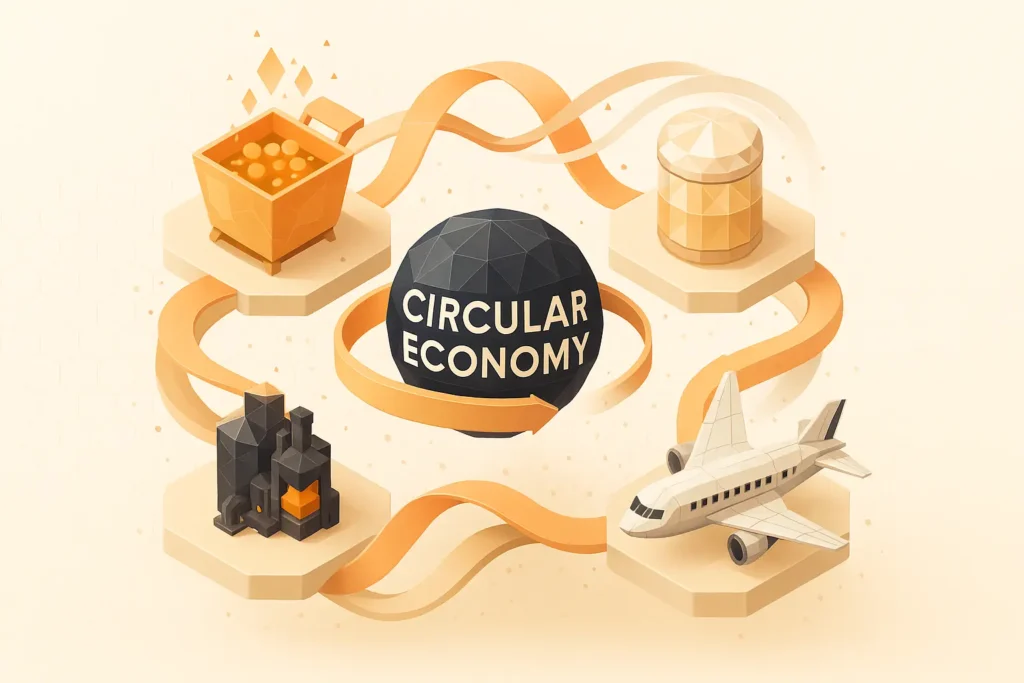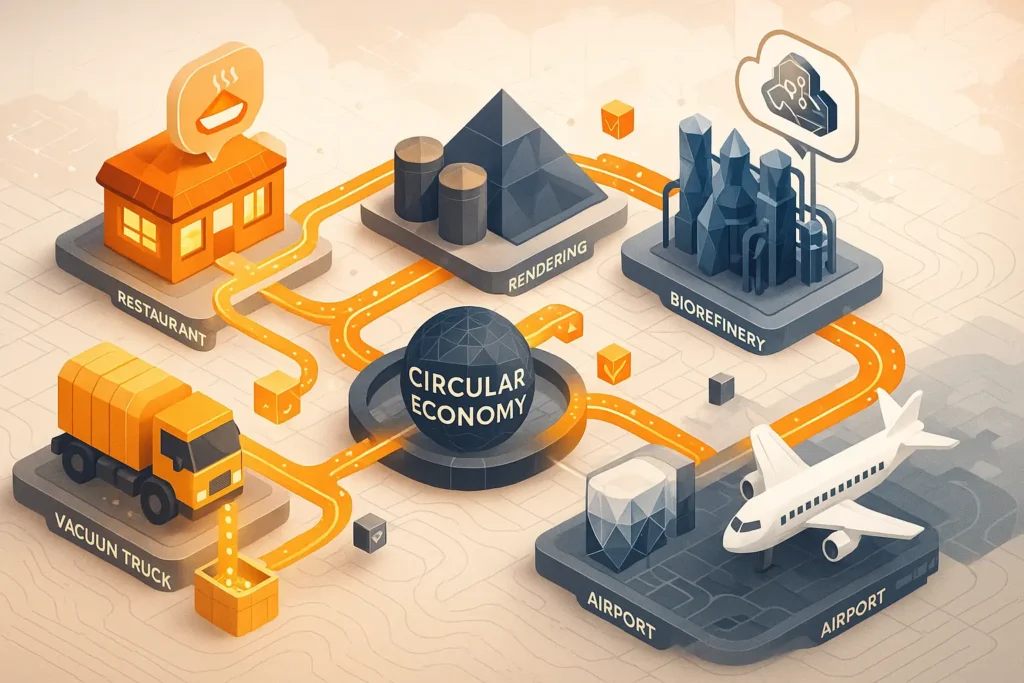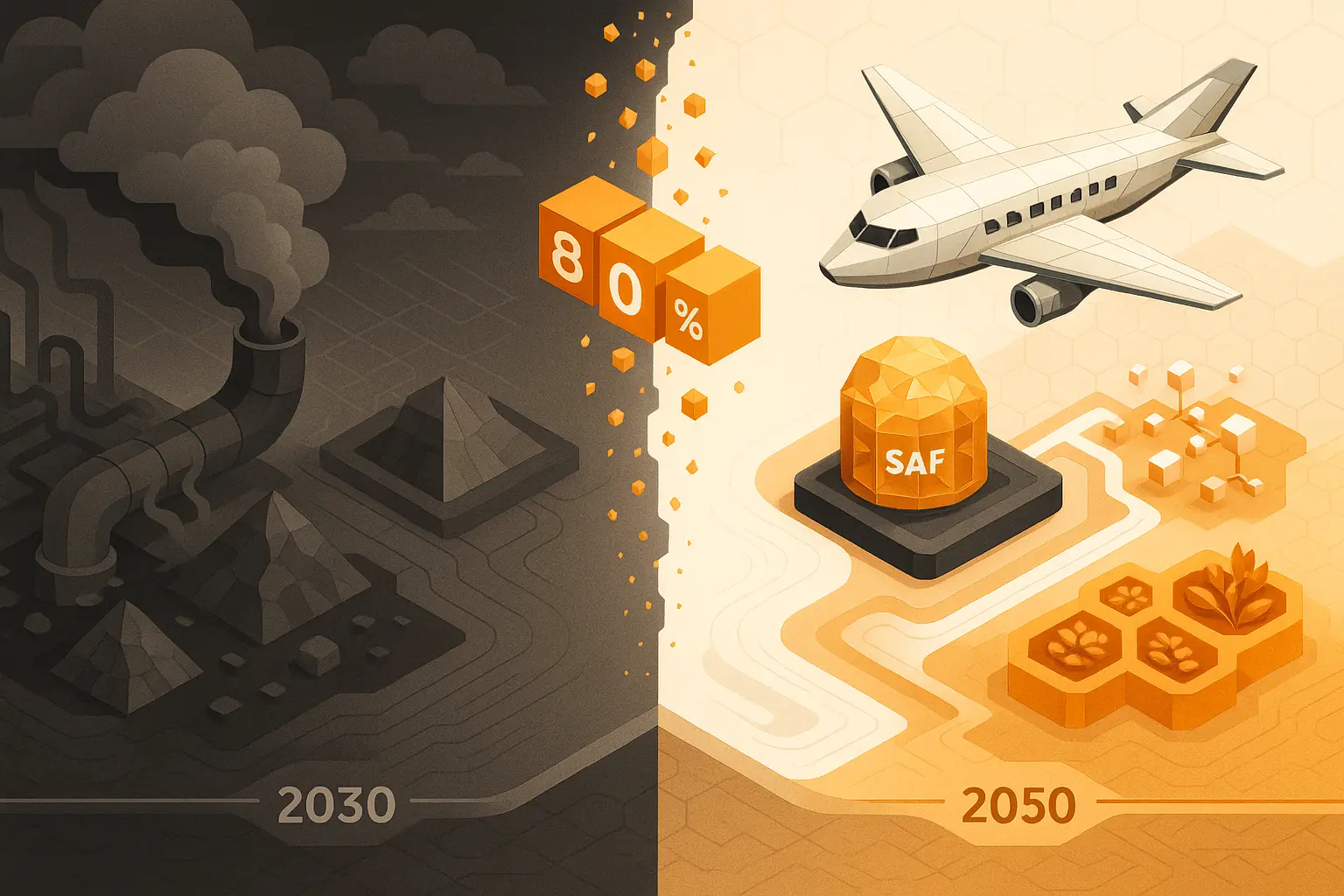Table of Contents
Waste to Value: Why Your Grease Bin Is a Gold Mine
Every fryer load leaves behind what looks like trash, but that used cooking oil (UCO) is prime feedstock for the booming sustainable aviation fuel (SAF) market, a classic waste to value story. Global airlines need 3 billion gallons of SAF by 2030, and demand pushed UCO prices up 40 % this year.
Collecting and refining that oil keeps it out of sewers, avoids disposal fees, and unlocks premium buy back rates from certified used collection companies, cash restaurants can reinvest in kitchen upgrades. By upcycling waste oil instead of discarding it, kitchens step straight into the UCO circular economy while meeting local FOG ordinances that protect city pipelines.

Circular Economy Principles in Plain English
A circular economy keeps materials moving instead of sending them to landfills. The Ellen MacArthur Foundation lists three core rules: eliminate waste, circulate materials at their highest value, and regenerate nature. UCO to SAF hits all three.
Restaurants eliminate waste by diverting grease; refineries circulate the oil as jet grade hydrocarbons; restored soils benefit from fewer crude oil spills, helping sustainable resource management. This closed loop stands in contrast to the take make trash model that still dominates food service supply chains.
Step by Step: Turning UCO into Jet Ready SAF
- Collection & Pre treatment: Grease is pumped into sealed totes, filtered, and tested for water and solids at local depots.
- Hydro processed Esters and Fatty Acids (HEFA): Refineries crack triglycerides, remove oxygen, and isomerize the chains into drop in jet fuel. HEFA is the leading waste valorization pathway for SAF, approved under ASTM D7566.
- Blending & Certification: Up to 50 % SAF is blended with conventional Jet A; airlines like JetBlue already fly on these blends out of JFK.
Lift off: The result delivers up to an 80 % lifecycle CO₂ cut compared with fossil kerosene.
The process embodies circular economy aviation, showing regulators that waste to energy solutions can scale today.
Industrial Symbiosis: Kitchens, Collectors, Refineries Working as One
Industrial symbiosis links unrelated businesses so one player’s waste becomes another’s raw material. Successful examples have raised profits and slashed emissions across Europe and the U.S.
In the grease to jet model, restaurants, grease collectors, rendering plants, and biorefineries exchange real time data on volumes, quality, and traceability through EPA funded blockchain platforms such as Veriflux. This collaboration keeps closed loop recycling verifiable, critical for airline greenhouse gas credits under the SAF Grand Challenge.

Closed Loop Impact You Can Measure
| Metric (per gallon) | Conventional Jet A | UCO SAF | Source |
|---|---|---|---|
| Lifecycle CO₂ (kg) | 9.6 | ≤ 1.9 | DOE Alt Fuels Center |
| Sulfur (% mass) | 0.04 | ≤ 0.001 | World Energy briefing |
By cutting greenhouse gases up to 80 % and nearly eliminating sulfur, SAF supports U.S. targets to produce 3 billion gallons by 2030 and meet 100 % of aviation demand by 2050. Fewer pipeline clogs, sewer overflows, and soil contaminants make life easier for city utilities, too.
Dollars & Sense: How Restaurants Profit
Selling grease is no longer an afterthought; it’s a hedge against energy price swings. Because airlines pay a premium for certified SAF feedstock, collectors share that margin with suppliers, often via guaranteed price contracts indexed to Fastmarkets’ UCO benchmark.
Add avoided fines for improper disposal, up to $2,000 per violation in many U.S. cities, and the business case is clear. Grease Connections offers transparent weight tickets and digital receipts, giving finance teams clean audit trails that banks already accept for sustainability linked loans.
Policy Tailwinds & Market Demand
The federal SAF Grand Challenge aligns DOE, FAA, and USDA funding to accelerate production pathways like UCO HEFA. New 40B tax credits reward refineries that track carbon intensity with GREET 2024.
Airlines, under pressure from corporate customers, have signed multi year offtake deals; JetBlue’s 3.3 million gallon JFK contract is just one example. As more states adopt Low Carbon Fuel Standards, restaurants across the United States can expect higher buy backs for clean, well segregated oil.
Getting Started: Close the Loop with Grease Connections
From Miami diners to New Jersey hotel kitchens, Grease Connections picks up UCO on a fixed schedule, guarantees traceability, and channels every drop into SAF production. See how our Miami service team keeps local kitchens code compliant while fueling tomorrow’s flights, then book your free audit today.









